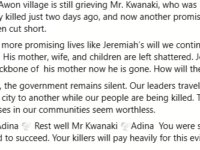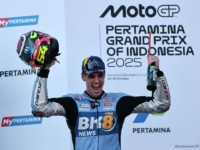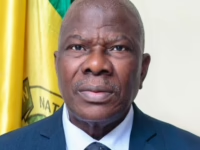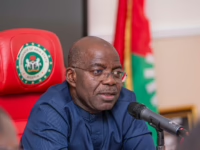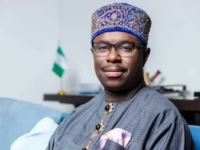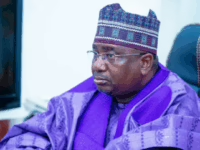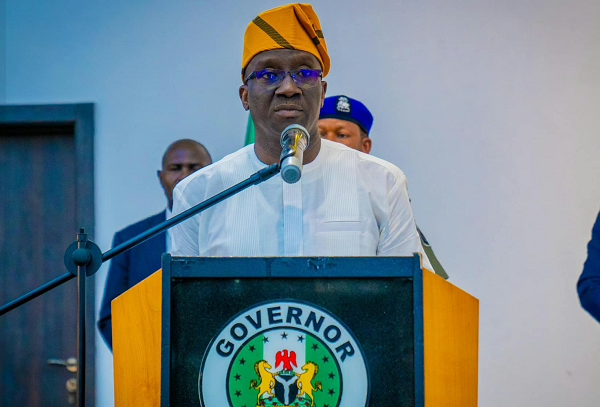The narrative of Nigeria’s progress is often etched in the condition of its roadways. Roads are far more than mere stretches of pavement; they serve as vital arteries linking agricultural zones to marketplaces, rural areas to urban centers, and individuals to opportunities. When these roads deteriorate, the impact extends beyond mere inconvenience for drivers.
They isolate communities, stifle economic growth, embolden criminal activities, and erode public confidence in government institutions. In Edo State, the prolonged neglect of federal highways has come to epitomize this widespread challenge. However, under the leadership of Governor Monday Okpebholo, a transformative approach is emerging-one that prioritizes citizens’ welfare over bureaucratic boundaries between federal and state authorities.
For an extended period, residents of Edo State endured the frustration of vital roads crumbling into hazardous pits and dangerous passages. The previous administration, led by Godwin Obaseki, maintained a rigid stance that federal roads were solely the federal government’s responsibility.
While this position might have been administratively sound on paper, its practical consequences were severe. Roads do not serve “federal” or “state” populations exclusively; they are used by all Nigerians, with Edo’s inhabitants disproportionately bearing the burden of neglect.
By declining to take even temporary remedial action, the former government left commuters stranded, traders facing financial losses, farmers unable to transport goods, and families vulnerable to serious risks. The deteriorating highways became a stark symbol of governmental apathy, widening the gap between public expectations and official responses.
Governor Okpebholo has charted a distinctly different course. From the outset of his tenure, he viewed the state of federal roads not as a distant issue to be resolved by Abuja’s slow processes but as an immediate developmental and security concern. His administration promptly initiated emergency repairs on severely damaged sections in Edo North and extended efforts to other critical routes that had fallen into disrepair.
These initiatives go beyond mere symbolism. They have revitalized traffic flow in areas where movement was once sluggish or halted, reconnected isolated communities, and restored market access for traders and farmers. By taking swift, visible action, the governor has conveyed a powerful message: the state cannot afford to wait passively while its people endure hardship.
The speed of these interventions is crucial to their success. Across Nigeria, citizens are often met with promises of future projects that remain unfulfilled. Okpebholo’s strategy emphasizes rapid deployment of temporary solutions-such as grading, resurfacing, and erosion control-delivering tangible relief within weeks rather than years.
Although these measures are not permanent fixes, their value is undeniable. They provide critical breathing room, reduce accidents, support commerce, and restore everyday normality. In a context where waiting for comprehensive federal reconstruction can span a decade, such interim solutions are not only practical but lifesaving.
Equally important is the governor’s framing of road repairs as a public safety imperative. Like many parts of Nigeria, Edo State has grappled with insecurity along neglected and isolated roadways. Criminals exploit these vulnerable corridors to carry out kidnappings and robberies, taking advantage of traffic congestion and poor visibility.
By addressing these roads, the government is reclaiming control from criminal elements. Well-maintained, accessible roads are easier to monitor, less susceptible to exploitation, and safer for travelers. This connection between infrastructure and security reshapes the conversation, underscoring that development and safety are inseparable, and that repairing roads is also a form of crime prevention.
Another cornerstone of Okpebholo’s approach is his openness to collaboration and external funding. Infrastructure projects demand significant resources, and state budgets are limited. Instead of using this as an excuse, his administration has actively sought partnerships.
The recent investment summit in Glasgow, which secured $250 million in commitments from the diaspora and private investors, exemplifies this proactive stance. While these funds target diverse sectors such as energy, agriculture, and industry, the willingness to attract and negotiate such investments expands Edo’s financial capacity.
This strategy signals that Edo is not passively awaiting federal disbursements but is innovatively broadening its revenue and investment streams. It marks a clear shift from previous insular economic policies and illustrates how international engagement can be harnessed to meet local development goals.
Beyond financial strategies, the governance culture is evolving. The Okpebholo administration emphasizes transparency and accountability. Publicly launching projects, setting clear deadlines, and providing regular progress reports establish measurable standards for citizens to assess government performance. This openness reduces the risk of projects stalling and raises public expectations for sustained delivery.
Such transparency fosters trust, an intangible yet vital asset for any administration. When citizens believe their leaders are genuinely working in their interest, they are more likely to tolerate short-term inconveniences and support long-term development initiatives.
What makes this approach particularly instructive for other states is its pragmatism. In Nigeria, federalism is often cited as a reason for inaction, with governors deflecting responsibility by pointing to federal ownership of certain roads or facilities.
Though technically accurate, such justifications do little to alleviate citizens’ hardships. Okpebholo’s choice to act regardless acknowledges a fundamental reality: governments are judged by results, not by bureaucratic boundaries. The designation of roads as “federal” does not diminish their importance to Edo’s people, whose welfare must take precedence.
This principle-that governance is ultimately about serving people rather than adhering to paperwork-should resonate nationwide.
Of course, caution is warranted. Emergency repairs, while essential, cannot replace comprehensive reconstruction and ongoing maintenance. States adopting Edo’s model must ensure that temporary fixes do not become permanent solutions. The ultimate objective remains full rehabilitation and modernization, ideally through collaboration with federal authorities and private sector partners.
Even here, Okpebholo’s example offers valuable lessons. By demonstrating commitment through immediate action, states strengthen their position when advocating for federal support. Showing that they have invested their own resources creates a compelling moral and political case for further assistance.
Transparency is also critical. For these interventions to serve as effective models, procurement processes must be clean, contracts must deliver value, and deadlines must be honored. Poor-quality work not only wastes funds but also undermines the trust these efforts aim to build.
Despite these caveats, the importance of Okpebholo’s initiatives cannot be overstated. Roads are among the most tangible indicators of governance quality. They influence every facet of life-from the speed at which food reaches markets, to children’s punctuality at school, to patients’ access to emergency care.
Roads impact not only economic activity but also the dignity of daily living. By stepping in where his predecessor hesitated, Okpebholo has not only repaired stretches of road but also rekindled a sense of care and connection between government and citizens. His leadership exemplifies that true governance is about taking responsibility for the consequences of inaction, rather than shifting blame.
If other states emulate this example, the revitalization of Nigeria’s federal roads may begin not in Abuja but through the boldness of governors who prioritize their people. It may start with modest emergency repairs and evolve into sustained partnerships for full-scale reconstruction.
Ultimately, what matters most is the resolve to act. In Edo, Governor Okpebholo has demonstrated this resolve, offering a governance model that is practical, responsive, and profoundly humane. More than technical expertise, this is the lesson other states should embrace: when leaders refuse to accept dilapidated roads as normal, they do more than restore infrastructure-they renew hope, dignity, and the promise of progress.





